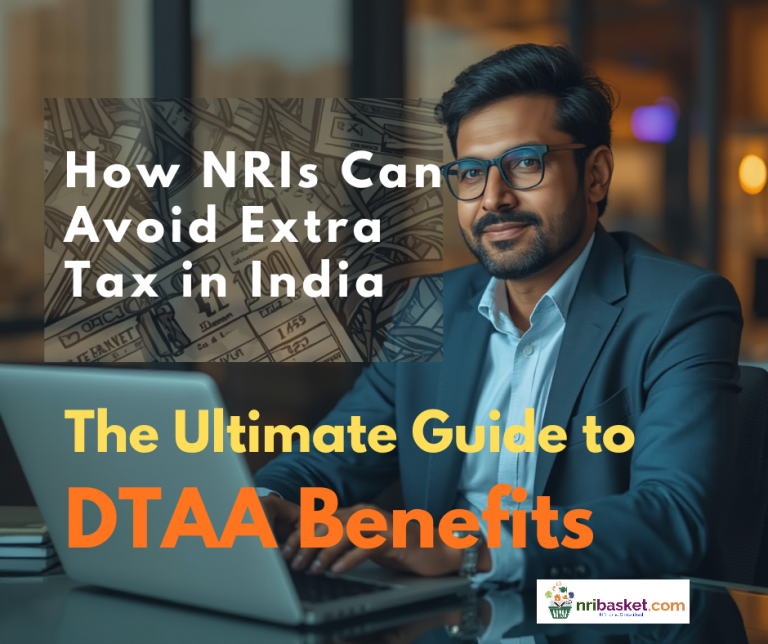
buying property in india fromAustralia
Learn how to buy property in India as an Australian NRI. Explore RBI rules, FEMA regulations, and NRI property investment tax benefits in India. A complete guide to owning real estate in India from Australia.
Introduction
Many Australian NRIs (Non-Resident Indians) dream of owning property back home in India—whether for emotional reasons, investment growth, or retirement plans. However, the process involves understanding Indian property laws, FEMA regulations, taxation rules, and repatriation limits. This FAQ guide simplifies everything you need to know about buying property in India as an Australian NRI—from eligibility and documentation to tax benefits and compliance with RBI guidelines.
Frequently Asked Questions (FAQ)
Details: Under FEMA (Foreign Exchange Management Act), NRIs with Indian passports or OCI cards can purchase residential and commercial properties in India without special permission from the Reserve Bank of India (RBI). However, they cannot buy agricultural land, plantation property, or farmhouses.
Details: An Australian NRI can buy multiple residential or commercial units in India. There’s no restriction on the number of properties owned, provided the funds come through legal banking channels in India.
Details: NRIs are prohibited from purchasing agricultural land, plantation property, or farmhouses unless they inherit such property or receive it as a gift from a resident Indian.
Details: Payments can be made via inward remittance through normal banking channels or from NRE, NRO, or FCNR accounts maintained in India. Foreign currency cash transactions are not allowed.
Details: Indian banks and housing finance companies provide home loans to NRIs under RBI guidelines. Loan repayment must be made through NRE/NRO/FCNR accounts or through rental income in India.
Details: Australian NRIs don’t need prior approval from the RBI for purchasing property in India as long as they follow FEMA regulations and use legitimate banking channels.
Details: Key documents include a valid Indian passport or OCI card, PAN card, Indian address proof, and bank statements showing the source of funds. Power of Attorney (POA) can be used if the buyer is abroad.
Details: Only Indian citizens, NRIs, or OCI cardholders can legally purchase property in India. Foreign citizens without OCI status cannot directly own property.
Details: NRIs must pay applicable stamp duty (5–7% depending on the state), registration charges (~1%), and TDS (tax deducted at source) if buying from another NRI.
Details: An Australian NRI can sell residential or commercial property to a resident Indian, another NRI, or an OCI holder. However, agricultural land can only be sold to resident Indians.
Details: Long-term capital gains (property held for over 2 years) are taxed at 20% with indexation benefits, while short-term gains are taxed as per income slab. NRIs can claim exemptions under Sections 54 and 54EC.
Details: Under FEMA, NRIs can repatriate up to USD 1 million annually from their NRO account after paying applicable taxes and submitting required forms to the bank.
Details: A PAN card is required for property registration, tax filing, and to avoid TDS complications during purchase or sale transactions.
Details: Rental income earned from property in India can be transferred to an NRE account or sent to Australia after deduction of applicable taxes (generally 30% TDS).
Details: The India-Australia Double Taxation Avoidance Agreement ensures NRIs don’t pay tax on the same income in both countries. Taxes paid in India can be claimed as credit in Australia.
Details: Buyers must deduct TDS of 20% for long-term property and 30% for short-term, before making payment to an NRI seller. PAN and TAN compliance is essential.
Details: Joint ownership is permitted between an NRI and resident Indian. However, payment for the NRI’s share must come from NRE/NRO accounts only.
Details: NRIs can inherit residential, commercial, or agricultural property from Indian relatives. They can also sell or gift it to eligible persons after legal formalities.
Details: NRIs can claim tax deductions under Section 24 (interest on home loan up to ₹2 lakh) and Section 80C (principal repayment up to ₹1.5 lakh) per financial year.
Details: NRIs living in Australia can authorize someone in India via a notarized and apostilled Power of Attorney to sign documents or handle transactions on their behalf.
Details: An NRI can gift property to a resident Indian, another NRI, or an OCI. However, gifting agricultural land or plantation property to an NRI is not allowed.
Details: Many Indian states have online land record portals. NRIs can verify titles, encumbrances, and ownership details through these government websites or legal representatives.
Details: Ready-to-move-in properties attract no GST, while under-construction units attract 5% GST (without ITC) for residential and 12% for commercial spaces.
Details: Real Estate Investment Trusts (REITs) offer a simpler, tax-efficient way for NRIs to invest in Indian real estate without direct ownership hassles.
Details: A foreign spouse who is not an OCI or NRI cannot jointly purchase property in India. In such cases, ownership must be limited to the NRI partner.
Details: Once legally purchased, property ownership doesn’t change due to citizenship status. However, repatriation and taxation rules continue under FEMA guidelines.
Details: Always verify ownership, encumbrance certificates, and builder credibility. Engage a lawyer or use registered POA for safe transactions.
Details: NRIs can reinvest capital gains in another property or specified bonds (NHAI/REC) within 6 months to claim exemption from capital gains tax.
Details: Transferring funds to an NRE or NRO account ensures smooth conversion, legal compliance, and easier repatriation later under FEMA norms.
Details: These cities offer strong infrastructure, rental demand, and capital appreciation. NRIs should research local laws, property trends, and connectivity before investing.
Summary Table of Key Rules & Tax Benefits
| Category | Key Information |
|---|---|
| Eligible Buyers | NRIs and OCI cardholders (Australian citizens of Indian origin). |
| Allowed Property Types | Residential and commercial only; agricultural or plantation land not allowed. |
| RBI Approval | Not required if purchase follows FEMA rules and uses legal banking channels. |
| Payment Method | Through NRE/NRO/FCNR accounts or normal banking channels (no cash allowed). |
| Home Loans | Available from Indian banks with repayment via NRE/NRO/FCNR accounts. |
| Repatriation Limit | Up to USD 1 million per financial year after tax payment and documentation. |
| Rental Income | Can be repatriated after paying applicable taxes (usually 30% TDS). |
| Capital Gains Tax | Long-term: 20% with indexation; Short-term: as per income slab. |
| Tax Benefits | Deductions under Sections 80C (principal) and 24(b) (interest) for home loans. |
| Double Taxation Relief | Available under the India–Australia DTAA treaty; tax credit in Australia for Indian taxes paid. |
| Power of Attorney | Allowed; must be notarized and apostilled from Australia. |
| GST | Applicable only on under-construction property (5% without ITC). |
| Reinvestment Exemptions | Sections 54 and 54EC allow reinvestment of gains to save tax. |
| Best Cities for Investment | Bengaluru, Mumbai, Pune, Hyderabad, Ahmedabad, Chennai. |





